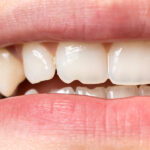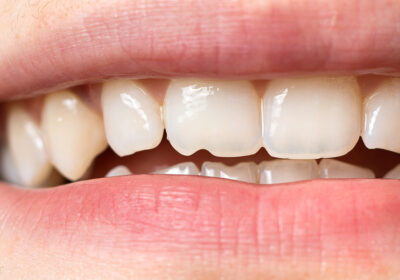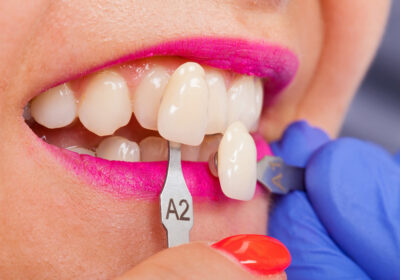
How To Cure Gum Disease: The Causes, Symptoms, And Truth About It
Gum disease is a prevalent dental issue that can negatively impact the gums, bones, and other supportive tissues surrounding the teeth. The accumulation of plaque, a sticky bacterial film, is the main cause of this condition. If left unaddressed, gum disease can result in tooth loss and other severe health complications. Hence, having knowledge about the causes, symptoms, and facts about gum disease is crucial, and it is crucial to seek prompt treatment.
Causes of gum disease
Plaque contains bacteria that release toxins that irritate and inflame the gums, leading to gingivitis. Gingivitis is the initial phase of gum disease, characterized by inflamed, bleeding, and reddened gums. If not addressed, gingivitis can advance to a more severe form of gum disease, called as periodontitis.
Other factors that can contribute to gum disease include poor oral hygiene, genetics, smoking and tobacco use, diabetes, and certain medications. Poor oral hygiene allows plaque to accumulate on teeth and gums, leading to gum disease. Genetics may also play a role in gum disease, as some individuals may be more susceptible to the condition due to inherited factors. Smoking a use can cause gum disease by reducing blood flow to the gums, leading to inflammation and infection. Diabetes and certain medications can also increase the risk of gum disease by affecting the body’s immune system and increasing the susceptibility to infections.
Symptoms of gum disease
Common signs of gum disease include swollen and red gums, bleeding gums, bad breath, gum recession, loose teeth, and pus between teeth and gums. Initially the symptoms of gum disease, may be mild and can be ignored. However, as the condition progresses, the symptoms can become more severe and lead to tooth loss and other health complications.
Truth about gum disease
Gum disease can lead to loss of tooth if left untreated. The toxins released by the bacteria in plaque can destroy the gum tissue and bone that support the teeth, causing the teeth to become loose and eventually fall out. Additionally, research has linked gum disease to other health conditions like heart disease, diabetes and stroke. The link between gum disease and these health conditions is thought to be due to the inflammation caused by gum disease, which can spread throughout the body and affect other organs.
However, gum disease is preventable and treatable with proper dental care and regular dental checkups. Brushing and flossing, eating a balanced diet, quitting smoking and tobacco use, and regular dental checkups are some of the preventive measures that can help maintain good oral health. Regular dental checkups can help in detecting and treating gum disease in its early stages before it progresses and causes irreversible damage.
Treatment options for gum disease
Treatment options for gum disease may vary depending on the severity of the condition. Root planing and scaling is a non-surgical procedure that involves the removal of tartar and plaque from the teeth and roots and smoothing out rough spots on the roots to prevent further buildup. Antibiotics may be prescribed to control the bacterial infection that causes gum disease. Surgery may be necessary for advanced cases of gum disease, such as periodontitis, to remove infected tissue and restore the supporting structures of the teeth. Dental implants can also be used to replace missing teeth caused by gum disease.
Prevention of gum disease
Effective oral hygiene practices are vital in the prevention of gum disease. Regularly brushing and flossing, consuming a balanced diet, quitting smoking and tobacco use, and scheduling routine dental checkups are some preventive measures that promote optimal oral health. Daily brushing with fluoride toothpaste and flossing can help eradicate plaque buildup on teeth, thereby preventing gum disease. Consuming a well-balanced diet comprising of fruits and vegetables can also bolster oral health and provide essential nutrients required for healthy teeth and gums. By quitting smoking and tobacco use, one can significantly reduce their chances of gum disease and other related health complications like cancer and heart disease.
Regular dental checkups are also crucial for preventing gum disease. A dentist can detect early signs of gum disease during routine checkups and provide the necessary treatment to prevent the condition from progressing. Dental exams typically include a thorough cleaning to remove plaque and tartar from gums and teeth, which can help prevent gum disease.
It is also essential to visit a dental lab near you or a dental labs NYC to get custom-fitted dentures if you have lost teeth due to gum disease. Dentures are a removable appliance that can help restore your smile and improve the quality of your life. A “denture lab near me” or a dental labs NYC can provide custom-fitted dentures that fit comfortably and function well.
Conclusion
In conclusion, gum disease is a common dental condition that can have serious health consequences if left untreated. Understanding the causes, symptoms, and truth about gum disease is essential for maintaining good oral health and preventing the condition from progressing. Preventive measures such as proper oral hygiene, a balanced diet, quitting smoking and tobacco use, and dental checkups regularly can help prevent gum disease. Treatment options for gum disease may vary depending on the severity of the condition, and a dental lab near you or dental labs NYC can provide custom-fitted dentures to replace missing teeth caused by gum disease. Taking care of oral health is crucial for your overall health and well-being, so make sure to schedule regular dental checkups and follow good oral hygiene practices.















